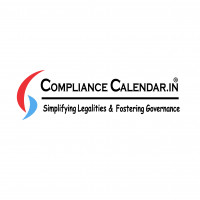Section 8 Company Registration in India – Simplified Process for NGOs and Non-Profits

Strong 8k brings an ultra-HD IPTV experience to your living room and your pocket.
A Section 8 Company Registration in India is a type of non-profit organization registered under the Companies Act, 2013. It is formed with the objective of promoting charity, education, science, art, religion, environmental protection, and social welfare, among other causes. Unlike other companies, Section 8 companies do not distribute profits to members, instead reinvesting them into the mission of the organization.
Who Should Register a Section 8 Company?
Ideal Entities for Section 8 Registration
If you're running or planning to start a non-profit organization and seek formal recognition, limited liability protection, and potential for tax benefits, a Section 8 company is ideal. NGOs, charitable trusts, education providers, and social entrepreneurs typically register under this structure.
Key Benefits of Registering as a Section 8 Company
Legal Recognition and Credibility
A Section 8 company is recognized by law and regulated by the Ministry of Corporate Affairs. This provides greater trust and credibility when dealing with donors, partners, and government agencies.
Tax Exemptions
These companies can apply for income tax exemption under Section 12A and 80G of the Income Tax Act. This means both the organization and its donors can enjoy tax benefits.
Foreign Funding Eligibility (FCRA)
Once established, a Section 8 company can apply for FCRA registration to receive international donations, a key advantage over other forms of NGOs.
Eligibility Criteria for Section 8 Company Registration
Non-Profit Objectives
The primary condition is that the organization should be formed for promoting commerce, arts, science, religion, charity, or social welfare.
Minimum Members and Capital
• Members: Minimum of 2 for a private limited and 3 for a public limited Section 8 company.
• Capital: There is no minimum capital requirement.
Documents Required for Section 8 Company Registration
Documents from Directors and Shareholders
• PAN Card (mandatory)
• Aadhaar/Passport/Voter ID/Driving License
• Passport-sized photo
• Utility bill or bank statement (proof of address)
Company Documents
• Proof of registered office (rent agreement or ownership deed)
• NOC from the property owner
• MOA and AOA (Memorandum & Articles of Association)
Step-by-Step Process for Section 8 Company Registration
Step 1: Obtain DSC and DIN
Every director must have a Digital Signature Certificate (DSC) and Director Identification Number (DIN).
Step 2: Name Approval (RUN Service)
Apply for name reservation through RUN (Reserve Unique Name) service. Names must include terms like Foundation, Association, Society, Council, etc.
Step 3: Filing SPICe+ Form with ROC
Submit SPICe+ Form, which includes details of directors, objectives, documents, and digital signatures.
Step 4: Issuance of COI and PAN/TAN
After successful verification, the Registrar of Companies (ROC) issues the Certificate of Incorporation (COI), along with PAN and TAN.
Timeline and Cost of Registration
• Time: Usually takes 15–25 working days
• Cost: Around ₹8,000 to ₹20,000 depending on consultancy and government charges
Post-Registration Compliance for Section 8 Companies
Annual Filing Requirements
Every Section 8 company must file:
• Form AOC-4 (Financial statements)
• Form MGT-7 (Annual returns)
Tax and Audit Obligations
• Mandatory statutory audit each year
• Filing of Income Tax Return (ITR-7)
• Maintain proper books of accounts
Comparison with Trusts and Societies
Feature Section 8 Company Trust Society
Registration Act Companies Act, 2013 Indian Trusts Act, 1882 Societies Registration Act, 1860
Governing Body Board of Directors Trustees Managing Committee
Legal Recognition High Moderate Moderate
Foreign Funding Easy after FCRA Complex Complex
Annual Compliance High Low Medium
Common Mistakes to Avoid During Registration
• Choosing a non-compliant name
• Incorrect or incomplete document submission
• Not clearly defining non-profit objectives
• Delays in applying for 12A/80G and FCRA
Why Choose a Professional for Registration?
Professional services help you:
• Navigate legal complexities
• Avoid rejection of forms
• Save time and effort
• Ensure compliance post-registration
Conclusion
Registering a Section 8 company is a powerful way to build a legally recognized, transparent, and credible non-profit organization in India. It offers tax benefits, access to foreign funds, and compliance support, making it ideal for serious social entrepreneurs and charitable institutions.
Whether you're launching a new initiative or transitioning from an informal group, Section 8 gives your mission the structure and legitimacy it needs to thrive.
Note: IndiBlogHub features both user-submitted and editorial content. We do not verify third-party contributions. Read our Disclaimer and Privacy Policyfor details.







